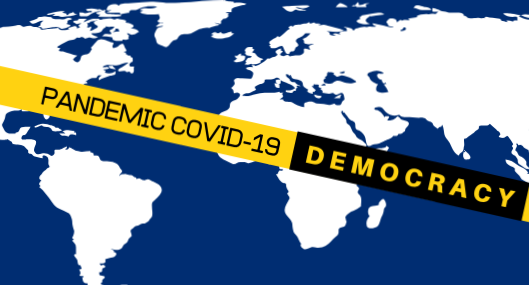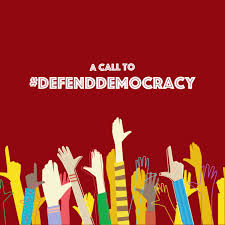
The real question the pandemic raises for democracies and dictatorships is not whether democracies or authoritarian regimes are responding better to the pandemic, notes Dan Slater, a nonresident scholar in the Asia Program at the Carnegie Endowment for International Peace. It is whether the stronger, bigger states emerging from the pandemic will be entirely authoritarian and unconstrained, or whether citizens will enjoy any democratic protections against this expanded state power.
There can be little doubt that Southeast Asian societies will have stronger states in place to protect them in the wake of this pandemic. Whether those societies will be able to protect themselves from those stronger states is a different matter entirely, he contends.
 The COVID-19 pandemic has triggered a number of exceptional legal/constitutional responses from governments around the world as they seek extraordinary measures to manage the threat, International IDEA adds. While there are a series of databases which have been established to track these responses, to understand the situation fully a more nuanced, in-depth expertise is required, and this requires in-country expertise. Through a partnership with the New Zealand Centre for Public Law at Te Herenga Waka—Victoria University of Wellington, the Center for International and Area Studies at Northwestern University, International IDEA presents a number of video testimonials providing in depth explanations of the legal/constitutional response to COVID-19 in over 40 countries.
The COVID-19 pandemic has triggered a number of exceptional legal/constitutional responses from governments around the world as they seek extraordinary measures to manage the threat, International IDEA adds. While there are a series of databases which have been established to track these responses, to understand the situation fully a more nuanced, in-depth expertise is required, and this requires in-country expertise. Through a partnership with the New Zealand Centre for Public Law at Te Herenga Waka—Victoria University of Wellington, the Center for International and Area Studies at Northwestern University, International IDEA presents a number of video testimonials providing in depth explanations of the legal/constitutional response to COVID-19 in over 40 countries.
 The pandemic poses serious threats to democracy, according to “A Call to Defend Democracy”, an Open Letter launched last week by the Stockholm-based International IDEA and the US-based National Endowment for Democracy. The letter was signed by some 73 pro-democracy institutions as well as a roll call of global political and civic leaders, including 13 Nobel Laureates and 62 former heads of state and government.
The pandemic poses serious threats to democracy, according to “A Call to Defend Democracy”, an Open Letter launched last week by the Stockholm-based International IDEA and the US-based National Endowment for Democracy. The letter was signed by some 73 pro-democracy institutions as well as a roll call of global political and civic leaders, including 13 Nobel Laureates and 62 former heads of state and government.
“This unprecedented demonstration of global solidarity is a sign that democracy, while threatened, is also resilient,” says NED President Carl Gershman, one of the signatories.
COVID-19 represents what you might call a battle of narratives between authoritarian countries and democracies, Gershman told Forum 2000. Democracies going through a real crisis and the pandemic sharpens that crisis.
Check out Democracy Decay’s Covid hub for valuable research and other resources.







